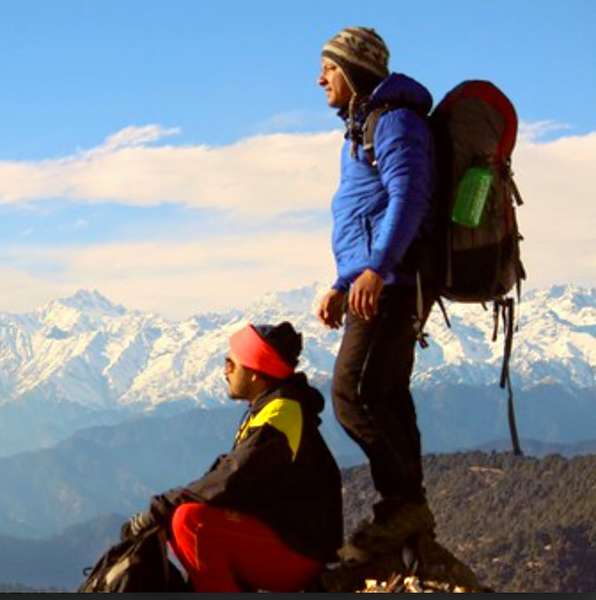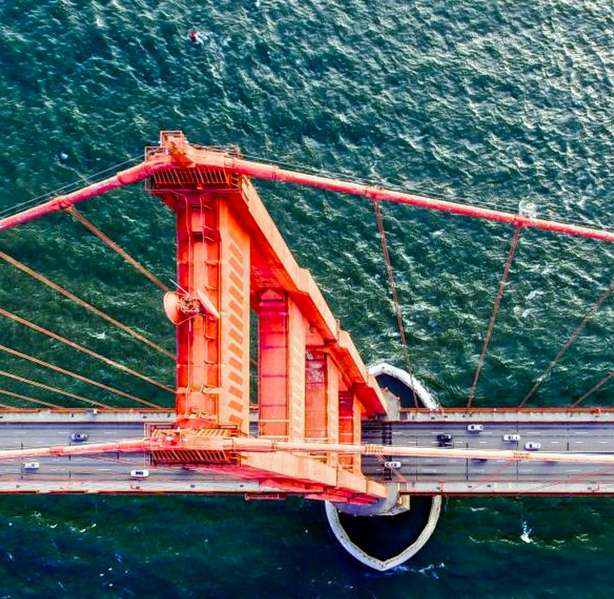Trekking in Srinagar
Take on the challenge of trekking through the stunning scenery of Srinagar, which includes rocky routes, clean lakes, and alpine meadows. On this unique Kashmir tour, you can witness the lush valleys, high-altitude passes, and secret lakes of the Himalayas.
Set off on the Kashmir Great Lakes trip, which offers breathtaking vistas of the lakes of Nichnai, Vishansar, Gadsar, Satsar, and Gangabal. Another thrilling choice is the Tarsar Marsar trek, which involves navigating challenging paths to get to the two magnificent alpine lakes of Tarsar and Marsar. On the other hand, if you love birds, you may experience the Doodhpathri trek, where you can spot vultures and golden eagles.
One of the unmissable things to do in Kashmir is the Gangabal Twin Lakes trek, which takes you through the Nichnai, Gadsar, and Zajibal passes. You can also take the short yet rewarding walk to Sheshnag Lake, which offers breathtaking views of Lidder Valley and Pissu Peak. The finest seasons to trek in Srinagar are January through March and September through October, when the routes are smooth, and the skies are clear.
Thrillophilia guarantees a smooth trekking experience during your Srinagar trip with knowledgeable guides, carefully thought-out itineraries, and simple reservations. Thus, select your journey and allow us to guide you through the breathtaking mountains of Kashmir.
Srinagar Trekking Packages | Duration | Price |
|---|---|---|
| Kashmir Great Lakes Trek | 7 days & 6 nights | INR 17,068 |
| Tarsar Marsar Trek, Jammu and Kashmir | 6 days | INR 16,499 |
Srinagar Trekking Packages
Best Trekking Destinations
Our Partners
Newly Added Experiences
Tourism Board Alliances
Srinagar Trekking FAQs
What are the best places for trekking in and around Srinagar?
1. Tarsar Marsar Trek: The 48-kilometer Tarsar Marsar Trek begins and ends in Aru Valley and lasts for 7 days. This easy-to-moderate walk is perfect for both beginner and experienced trekkers. On this trek, you pass through Tarsar Lake, a turquoise, almond-shaped body of water surrounded by tall peaks at 13,450 feet. Additionally, you can witness stunning views of the Shekhawas’s green mountains and massive alpine lakes fed by melting snow from the surrounding mountains on this trek.
2. Kashmir Great Lakes Trek: To experience trekking in Kashmir, you can opt for the 72-kilometer, eight-day Kashmir Great Lakes Trek. This moderate to difficult trek starts at 7,800 feet in Sonamarg and takes you beyond the seven Satsar Lakes. You arrive at 11,500 feet at Gangbal and Nundkol and then cross the Nichnai Pass at 13,100 feet. The highest point of the journey is the 13,750-foot Gadsar Pass. A descent to Naranag marks the end of the walk, where you can see Himalayan marmots, ibex, and musk deer while traversing meadows covered with blue poppies and wildflowers.
3. Gangabal Lake Trek: The Gangabal Lake trek is a moderate to challenging, eight-day hike that ascends 11,768 feet. The 27-kilometre walk begins in Naranag village, where trekking in Kashmir introduces you to the perennial spring and ruins of Naranag’s Shiva Temple. At the foot of Mount Harmukh (5,142 m), you can find the Gujjar mud cottages at Trunkhol meadow on this trek. Then, you can go to Nundkol Lake and Gangabal Lake, the biggest alpine lakes in Kashmir, which are well-known for trout fishing.
4. Dachigam National Park Trek: The Dachigam National Park offers a few moderate to challenging treks that lead you to an elevation of 1,600m to 4,200m. Among the best places for trekking in Kashmir, you can choose between the 10 km New Theed-Dachigam Trail and the 17.1 km Pathlipora Trek. On these trails, you can spot Himalayan Black Bears, Brown Bears, Musk Deer, and the endangered Hangul (Kashmir Stag). Birds like the Himalayan Monal, Golden Oriole, Band lack Bulbul can be seen frequently as well.
5. Mahadev Peak Trek: You can reach a height of about 3,966 meters on the Mahadev Peak Trek. This 20-kilometer, moderately level walk offers stunning views of the Dachigam National Park and the Zabarwan Range. It starts in Faqeer Gujri, Dara, and passes through the Mamneth, Astanmarg, and Burzwas regions. Known as one of the best places for trekking in Kashmir, this path allows you to camp in the ancient Gujjar huts in Lidwas Valley. In the final leg of this walk to Mahadev Bowl is where you can see Kolahoi Glacier, Tarsar and Marsar Lakes, and Mount Harmukh.
What is the best time of year for trekking in Srinagar?
The best time for trekking in Kashmir’s Srinagar is from July to September, as the weather remains clear and the meadows bloom with flowers. The trails open as snow melts at higher elevations, making treks like the Kashmir Great Lakes, Tarsar Marsar, and Mahadev Peak accessible. Lower-altitude treks like Dachigam National Park and Gangabal Lake also offer great conditions with lush greenery and wildlife sightings.
What level of fitness is required for trekking in Srinagar?
Trekking in Srinagar requires strong endurance for long excursions with severe slopes. Having a strong cardiovascular system can be beneficial for hikes like the Kashmir Great Lakes due to the high-altitude terrain. Frequent running, walking, or exercising prior to the trip can help you get ready for this adventure, ensuring a fun and fulfilling experience of trekking in Kashmir.
What essential gear should one carry for a trek in Srinagar?
The essential gear that you must carry on an easy trek in Srinagar is a sturdy rucksack, waterproof trekking shoes, a sleeping bag, and a tent. However, to get around in the challenging terrain of the Greater Himalayas, you need better gear for professional walks, like crampons, carabiners, belayers, and ascenders. You also need a water bottle, a trekking pole, a rain cover, and a daypack for carrying necessary things like dry fruits and medicines.
Are there any permits required for trekking in Srinagar?
Yes, permits are required for most treks in Srinagar. For instance, approval from the Jammu and Kashmir Tourism Department is required for the Gangabal walk and the Kashmir Great Lakes trek. These permissions can be acquired from the Srinagar Forest Department.
How challenging is the Tarsar Marsar trek for beginners?
The Tarsar Marsar trek is moderately difficult, covering around 47.6 km over 7 days. It is one of the best places for trekking in Kashmir, which can be undertaken by anyone between the ages of 11 and 62 years with proper preparation. Except the first (10 km) and last (13 km) days, the daily distances to be covered are small, about 5 km. You'll need trekking poles and leg strength for the final day's steep 4,000-foot descent.
Srinagar Trekking Reviews







